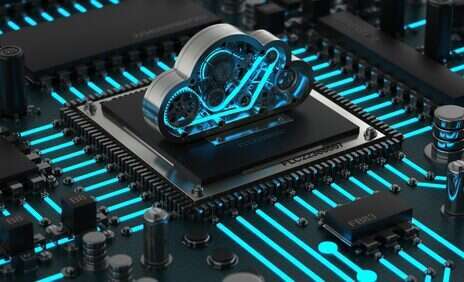STC Plc’s confirmation yesterday that it was in talks with Fujitsu Ltd about the Japanese company taking control of ICL brings to a close the final chapter of serious British-owned involvement in computer hardware – the Transputer is now Franco Italian, Acorn Computers Plc is owned by Olivetti, Apricot Computers has gone to Mitsubishi Electric after its former parent killed off the hardware side at ITL, Ferranti Computer Systems has withdrawn to the role of systems integrator, GEC Computers has vanished, and it is left to the likes of Amstrad Plc, Research Machines, HM Systems and Integrated Micro Products Ltd to keep the dimly flickering torch alive. Sanderson Electronics will do a little to redress the balance when it takes control of General Automation, but the General is not much of a manufacturer these days, and does what it does in the US. The picture is not much better in software and services, with Sema Group under French management, Hoskyns passing to Cap Gemini Sogeti, Data Logic American-owned. The proposed ICL-Fujitsu deal can’t be viewed as a disaster from the point of view of availability of challenging employment at the leading edge of technology because Fujitsu’s interest in the company has to be in part to gain expertise in areas where it is weak. And after its embarrassing experience of having ICL try to sell its IBM-compatible mainframes in the UK in the early 1980s, it is not likely to be in any hurry to persuade ICL and its users that their mainframe future lies with IBM-compatibility. The deal is of course a further demonstration that in contrast to US and UK companies, which can seldom see far beyond the next quarterly or half-yearly report, Japanese companies are in everything for the long term. Fujitsu arrived in Europe in 1974 when it landed in Barcelona lonely as Captain Cook’s party when they made land-fall in Botany Bay. It took the company a decade to build the trust of the Spanish authorities and become a dominant player in the local computer market, and its direct presence in the rest of Europe is still largely confined to sales of OEM peripherals and semiconductors – now assembled in Ireland, soon to be manufactured in England. But the ICL deal turns Fuji tsu overnight into a major player in the European computer market and has come to fruition remarkably quick ly on Japanese time-scales – only nine years after Robb Wilmott signed his technology exchange agreement with Fujitsu that gave ICL privileged access to the Japanese company’s chip technology – but you can be sure that Fujitsu saw eventual control of ICL as the final outcome of that arrangement. Nor is that the end of Fujitsu’s ambitions in Europe: the planned Siemens-Nixdorf Informationssysteme AG is clearly in its sights with Siemens currently marketing Fujitsu’s supercomputers in Europe, and periodically including Fujitsu built models in its 7.500 series mainframe line. Why should Fujitsu be confident that it will be able to play a bigger role at Siemens-Nixdorf? C’mon, you know that Siemens’ BS2000 mainframe users are going to throw in the towel on a near IBM compatible system that isn’t and turn to open systems quicker than Siemens can build up its open systems business to fill the gap left by collapsing mainframe sales! And there is a slight problem on the open systems front here because while ICL and Fujitsu – and Fujitsu’s US affiliate, Amdahl Corp – are all firmly in the Unix International-Sun Microsystems Sparc-AT&T Unix camp, Siemens has quixotically decided to humour IBM, its partner on next-but-one generation memory chips and on digital telephone exchanges by joining the Open Soft ware Foundation although it looks rather doubtful now that Siemens will ever actually adopt the OSF/1 operating system. Fujitsu has always been the most thrusting of the Japanese computer companies, far more willing than its siblings to put its head above the international parapet, but that is no doubt in part because it is the only Japanese computer company that lives or dies by computers.
Out of a job
All the others could exit the comput
er industry – as Toshiba did briefly in the early 1980s – without it causing a serious upheaval in their vast non-computer businesses. But it is certain that NEC Corp sees its 15% stake in Bull HN Information Systems as only the first major step on a very long road that is intended to lead to control of much of, if not all of Bull. Hitachi Ltd has taken over National Advanced Systems and has Comparex Informationssysteme and Olivetti Computers in its sights – and it supplies key chips for the top-end Unisys 2200 mainframes, while Oki Electric, Mitsui & Co and Mitsubishi Electric all have rather bigger fingers in the Unisys pie than is ever made evident. The most bizarre aspect of the proposed agreeement is STC Plc’s willingness to cede control of what is now substantially its biggest business. STC with UKP600m or so cash simply becomes a much more attractive target to a predator than STC with 100% or even 80% – of ICL, and unless there is a very good home planned for that UKP600m and it finds its way to that home very quickly, the top management at STC will likely find it has dealt itself out of a job.





